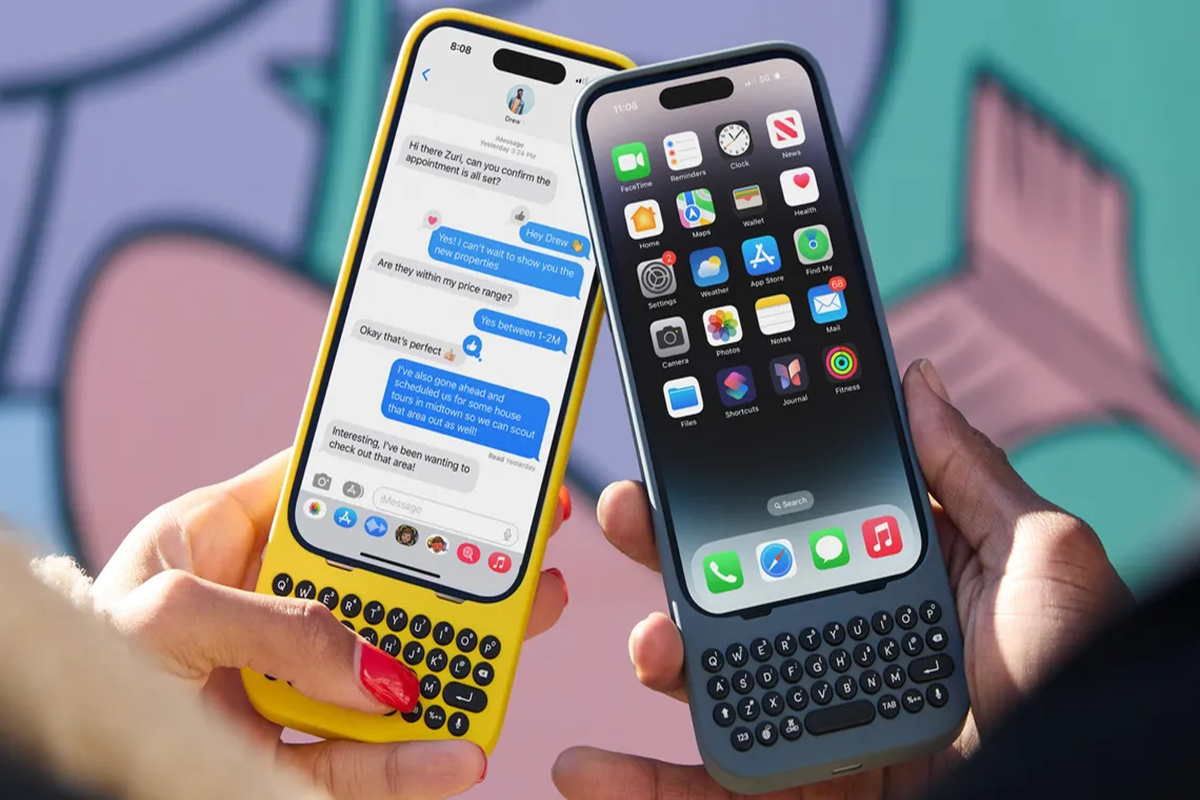In the era of touchscreen smartphones, the Clicks keyboard aims to satisfy the nostalgia for physical buttons on the iPhone. Designed as the first “creator keyboard” for iPhone 14 Pro, iPhone 15 Pro, and iPhone 15 Pro Max, Clicks offers a unique solution for those who miss the tactile feel of typing.
Developed by tech reviewer Michal Fisher, Clicks is a lightweight keyboard accessory that attaches to the bottom of the iPhone, reminiscent of the classic 2009 Palm Pre look. Weighing just a fraction of a pound, it promises a “perfect balance” of click resistance and feedback, aiming to provide a familiar and satisfying typing experience.
Clicks retains the standard layout of the iPhone keyboard, ensuring ease of use for users. The keyboard also includes keys for voice input, commands, and tab, catering to various typing needs. Depending on the iPhone model, the Clicks keyboard is priced between $139 and $159.
While Clicks brings back the physical keyboard concept, it’s not the first attempt at reintroducing buttons to iPhones. In 2014, Typo introduced a physical keyboard that covered the Touch ID home button, mimicking the BlackBerry look. However, Clicks distinguishes itself by snugly attaching to the iPhone’s bottom while maintaining a protective case.
For users contemplating whether a physical keyboard is the solution to their typing preferences, alternative options exist. Keyboard apps, like Gboard, offer features such as resizing the keyboard on the display, addressing spacing challenges during typing. Some developers are integrating AI into digital keyboards, with Samsung rumored to add AI features to enhance typing experiences.
Despite Clicks’ attempt to revive the physical keyboard trend, it faces competition from existing digital solutions and the evolving capabilities of touchscreen keyboards. The question remains whether users are willing to embrace a physical attachment, especially considering the availability of cost-free alternatives.
In conclusion, Clicks brings a nostalgic touch to iPhone typing, catering to those who miss the sensation of physical buttons. However, with advancements in digital keyboard technology and alternative solutions, the success of Clicks in the market may depend on how users perceive the value of reverting to physical buttons on their iPhones.

Leave a Reply